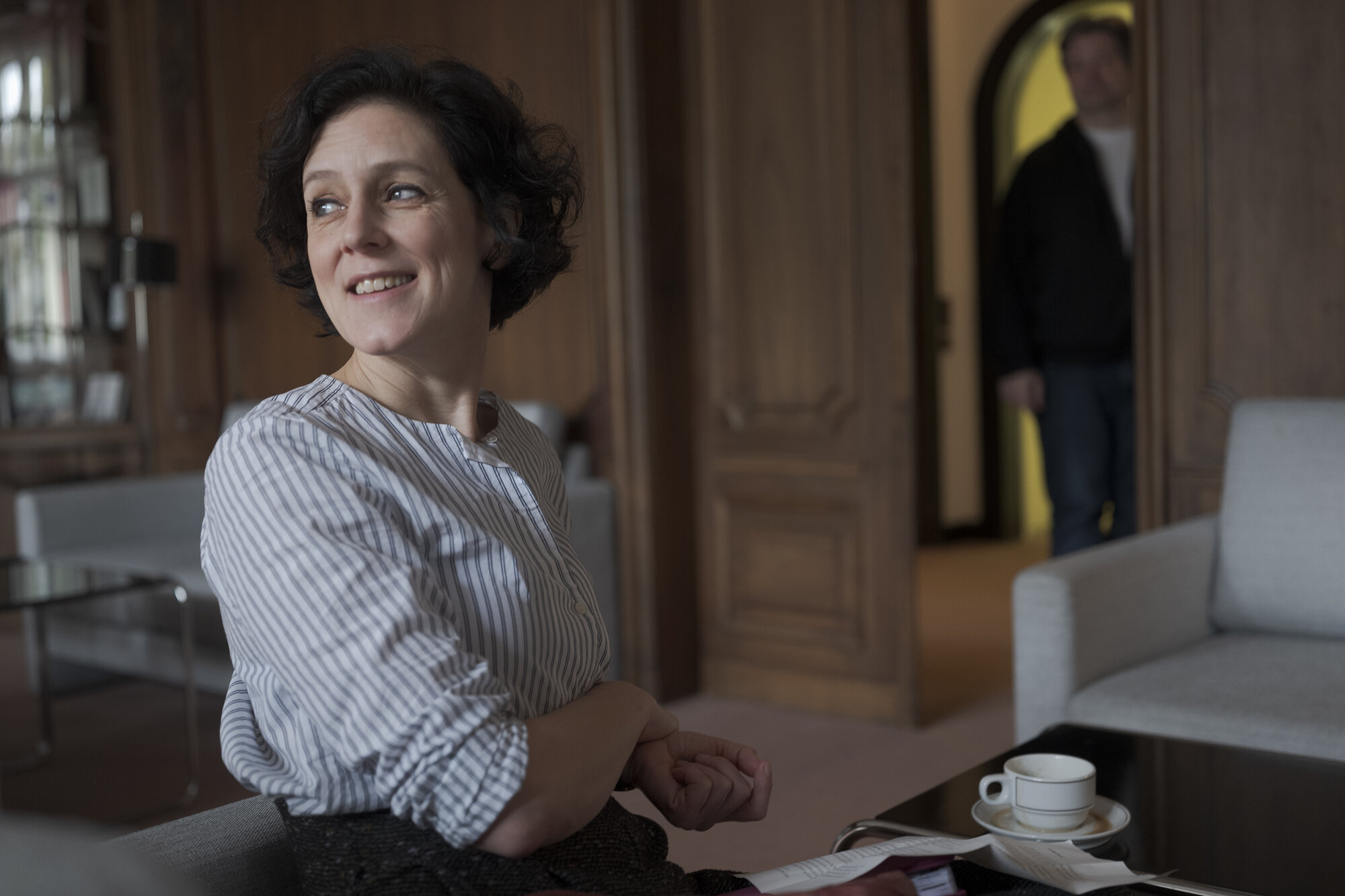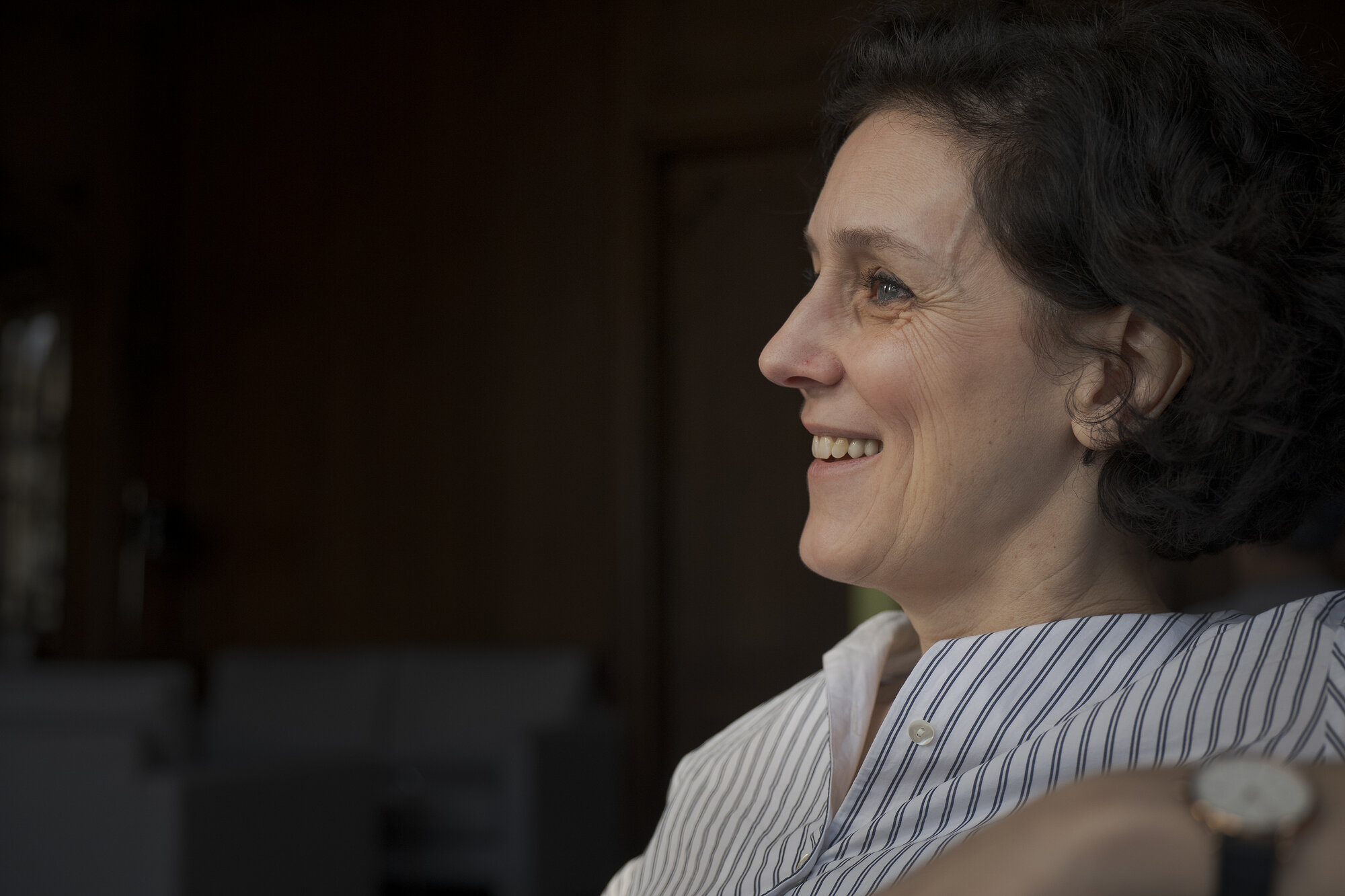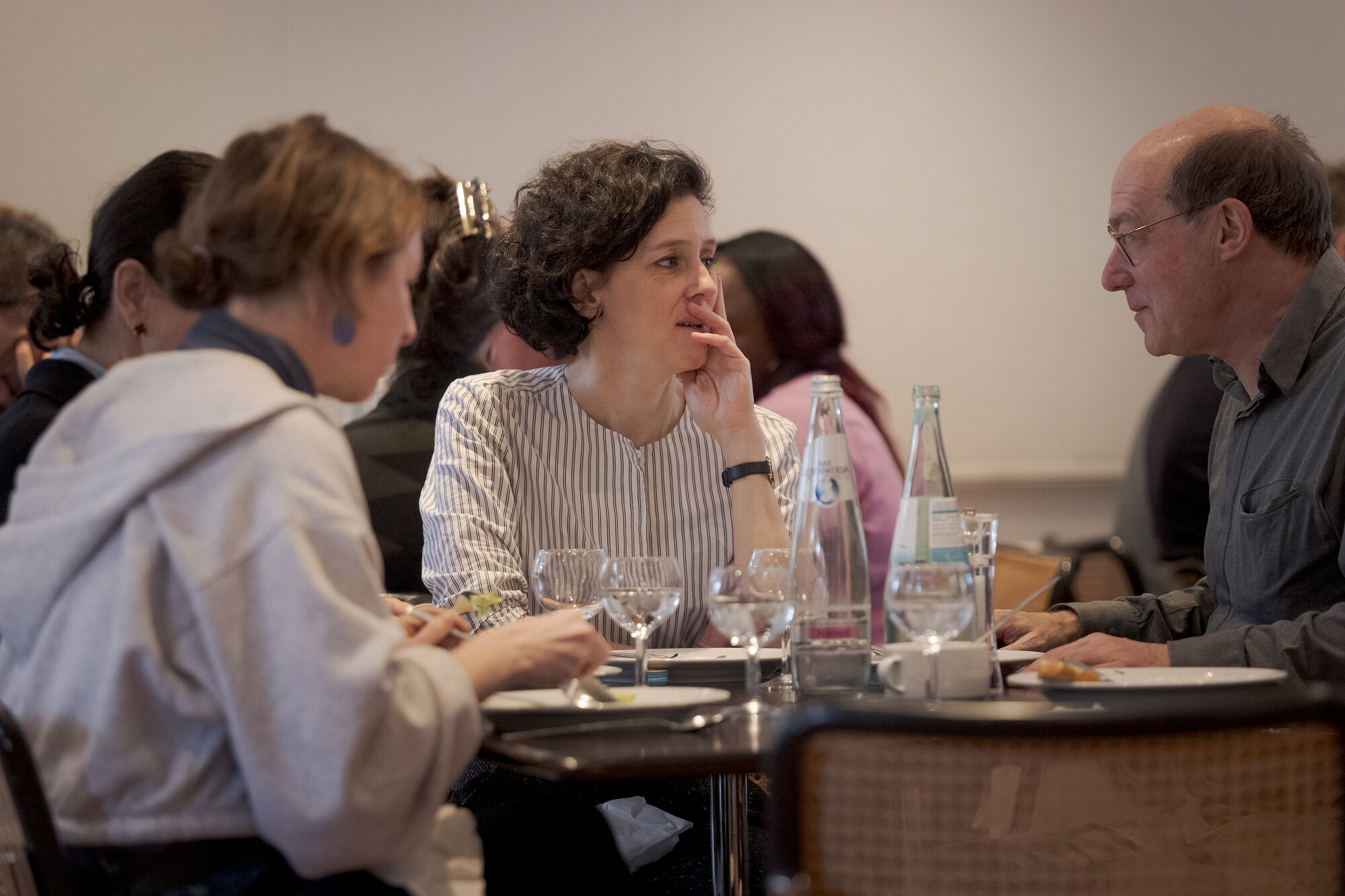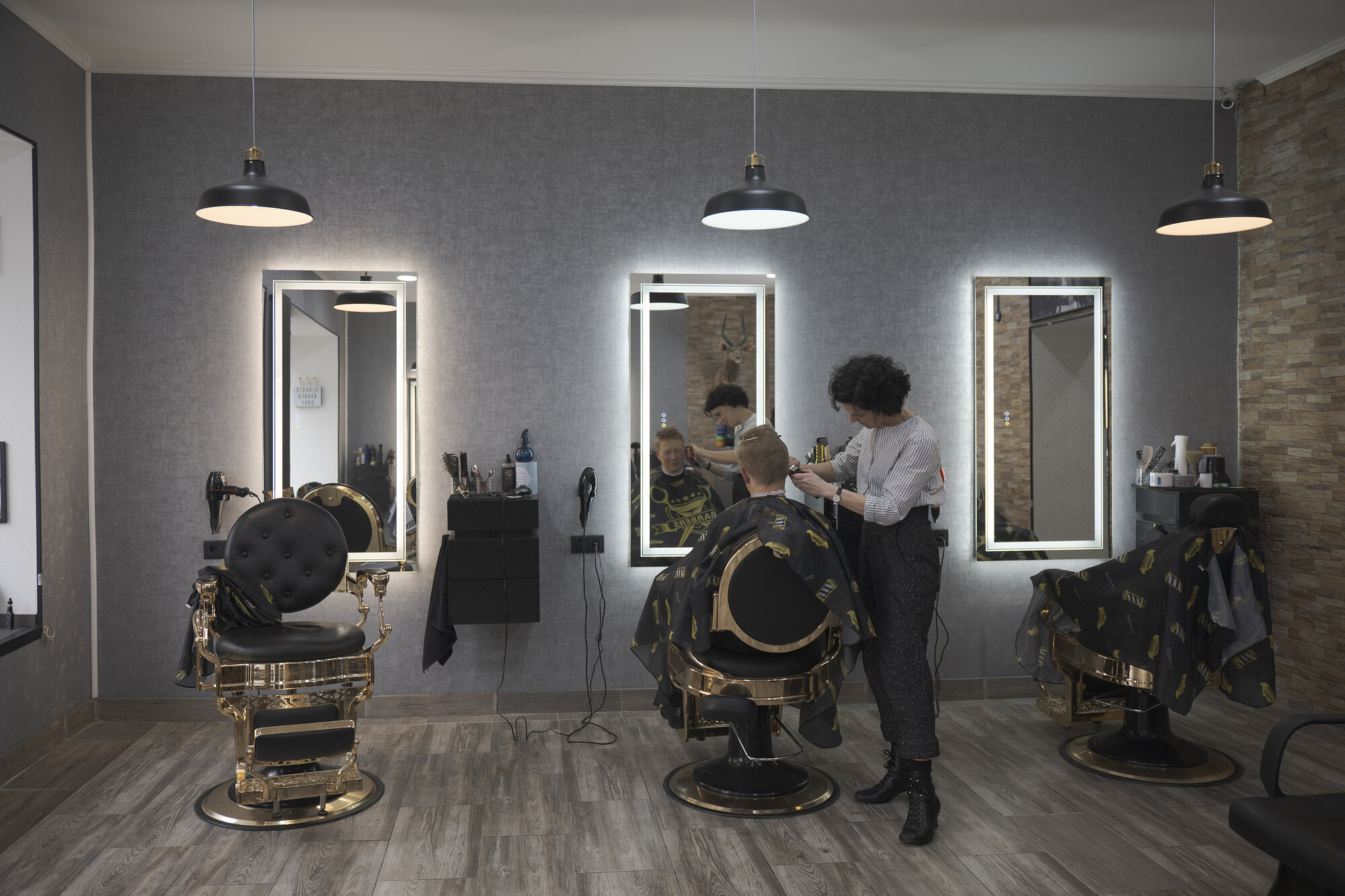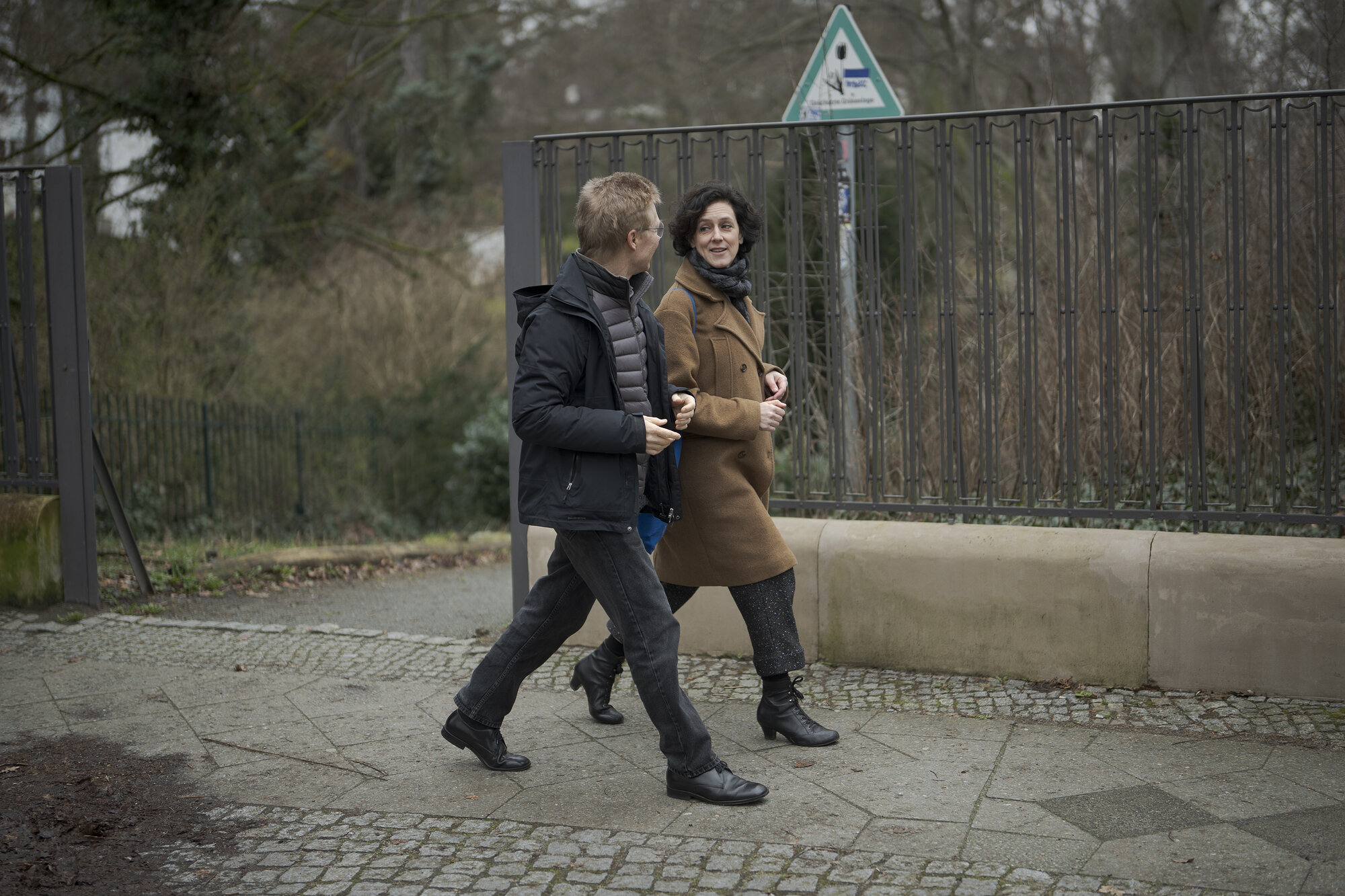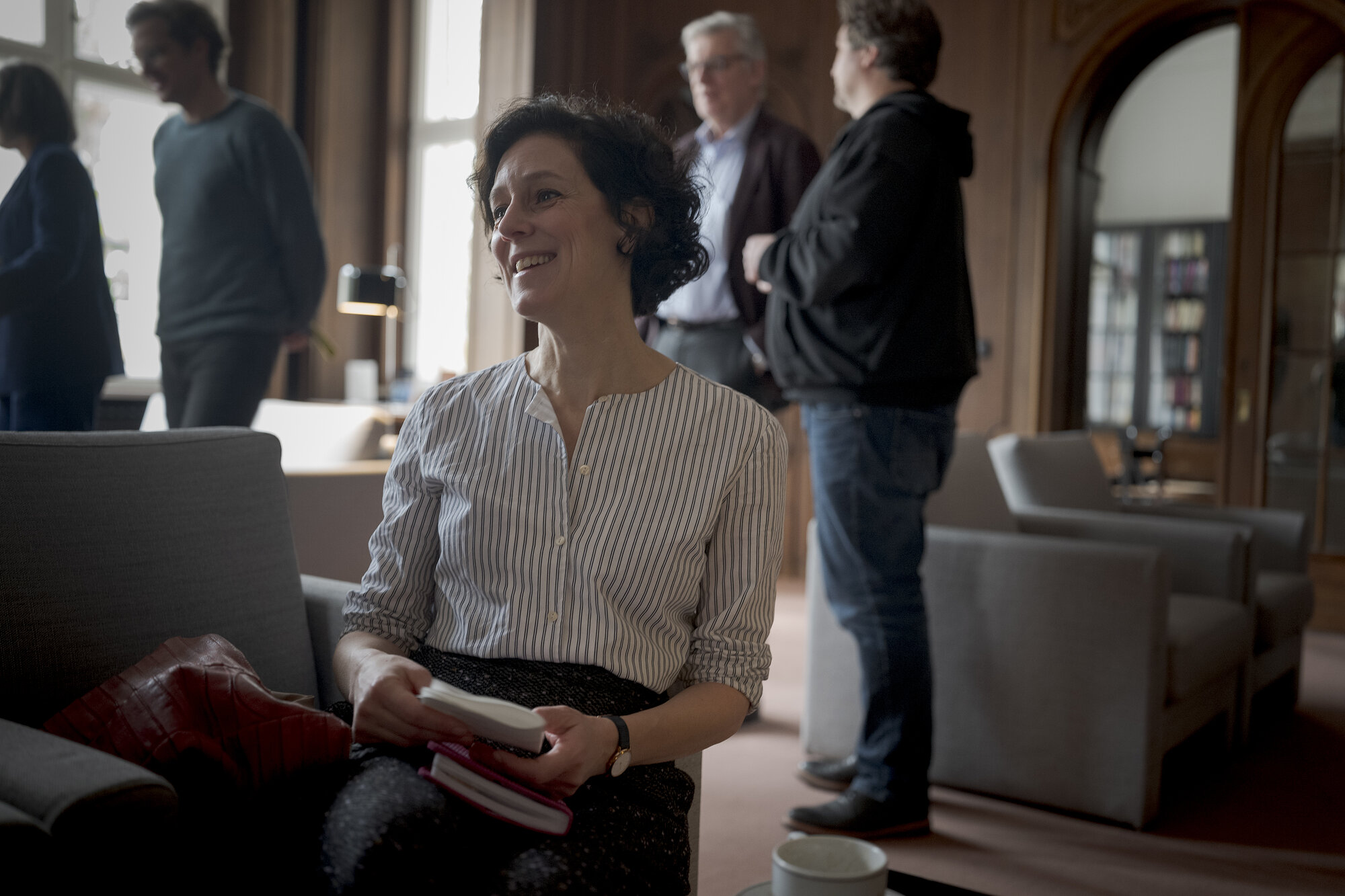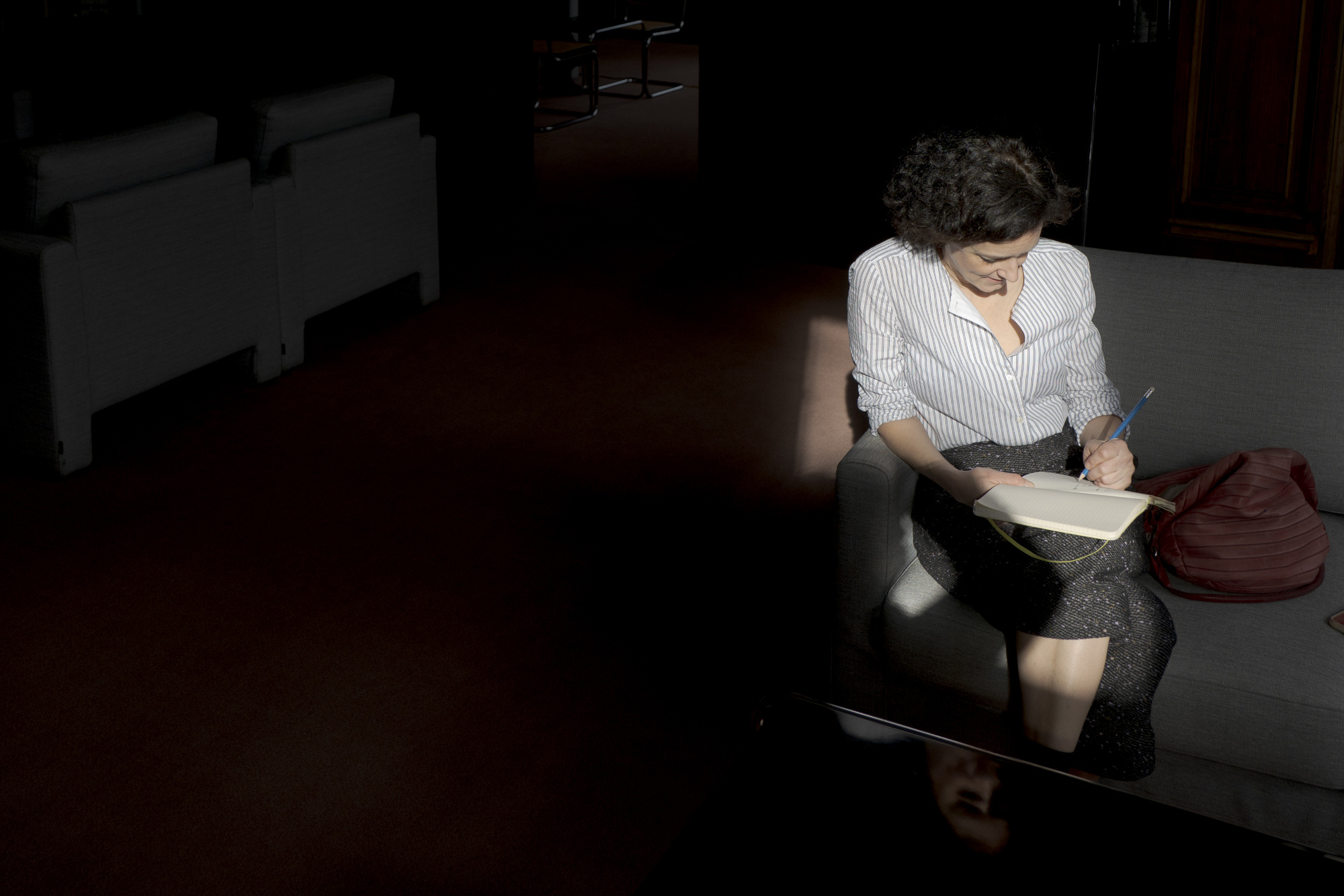Issue 19 / May 2024
Letter from Berlin
Phantom Customers – Notes of a Hairdresser after a Lecture at the Wissenschaftskolleg
After several months of field research in the hair salons and barber shops of a German city, the author, who is both a sociologist and hairdresser, presented certain theses from her recently published book (Abenteuer einer linkshändigen Friseurin, edition überland, 2024) during her colloquium at the Wissenschaftskolleg zu Berlin. In her talk, among other things, she spoke of the unusual sociability and exuberant language that one commonly finds in hair salons. Then a bald man from the audience asked her a question that caused her some embarrassment. The question helped to point out a blind spot in her research: phantom customers. The following text is both a shout-out and a thank you to this man.
“Barbara, why should I read your book?” a philosopher seriously asked me after my lecture. “I’m bald!”
Of course my Co-Fellow needn’t read the book, but he did pose an important question. His shiny pate casts light, as it were, on a blind spot in the hairdressing world and in my research on hair salons and barber shops – namely the phantom customer. What about those who don’t need their hair cut or simply don’t want to or can’t? In the spirit of Susie Scott’s essay “A Sociology of Nothing: Understanding the Unmarked” (2018) we are in fact dealing here with the “sociology of nothing.” The goal of such sociology is to shed light on the unseen, recognizing the contours of a certain narrative in view of a certain omission. Although he’s no customer, this baldheaded Fellow is part of an invisible society whose shape I would like now to briefly sketch.
You won’t meet the phantom customer in hair salons or barber shops. They lack the hair, money, inclination or mind-set. If they do put in an appearance then it’s with reluctance and only on rare occasions; and if I have learned anything about them, then it’s merely because my existence as a hairdresser evokes certain memories – and so too in the case of Michael. He attended my aforementioned lecture and afterward he likely felt impelled to compose a long blog entry. His “haircut memories” provide information about his discomfort with hair salons. Above all he loathes the demonstrative sociability of these places, the typical small talk between strangers, and he dismisses their subject matter as silly and trivial: “I can’t stand being in a confined space with someone I don’t know and then having to fill the awkward silence with blather and babble.” As a natural scientist he prefers concrete content and fact-based purpose.
Other phantom customers express their displeasure in the language of neurodiversity. They underscore the absence of personal space, the close physical, almost intimate contact with strangers, and most of all the diverse sensory stimuli – the whirring of hairdryers, the beeping of cell phones, pop music from the loudspeakers, voices coming from every direction; the perfume of hair-care products, the pungent smell of perm chemicals, the glaring neon light.
And how do I recognize those hirsute people who will soon be ghosting me? By the fact that they come with freshly washed hair and leave with wet hair; by the fact that they start talking straightaway and have much to say and quickly exhaust each topic that they have prepared.
Another example of a future phantom customer: Dieter. He got his haircut because he wanted to support my project. That was nice. I felt a little bad about it – on the other hand, he badly needed a haircut. I draped the sheet over him and set to work. I quickly noticed that he was restive, fidgeting in the barber chair. I quickened the pace of my work; he didn’t grow any less impatient. Although he likely had sufficient time on his hands as a retiree, he was inconvenienced by having to sit still for so long. Visibly annoyed, he raised his hand as if wanting to drive off an invisible fly. The fly was my hand. That was probably his last visit.
The lecture at which the bald philosopher asked his question took place in a venue where individuals supposedly put scant effort into maintaining their outward appearance and where traditional dress codes don’t apply – a research institute. Other types are certainly to be found here as well: the political scientist who is an elegant lady from Austria, the archeologist of images with his beautiful hand gestures, the stylish woman from the PR department, the meticulously turned out lawyer. But among all the dematerialized beings here, they are hardly representative. Indifference to one’s own appearance – whether in fact or in a somewhat demonstrative manner – combined with an aversion to barbers and hairstylists, probably means that in certain cases there is a general avoidance or total neglect of haircutting. The sociology of nothing reminds us of just such phantom customers and suggests that there are quite a few of these. It gives them, without their suspecting it, a platform and draws attention to their behavior and their – negative – relationship to the hair salon. And that’s not nothing.
More on: Barbara Thériault
Images: © Maurice Weiss
